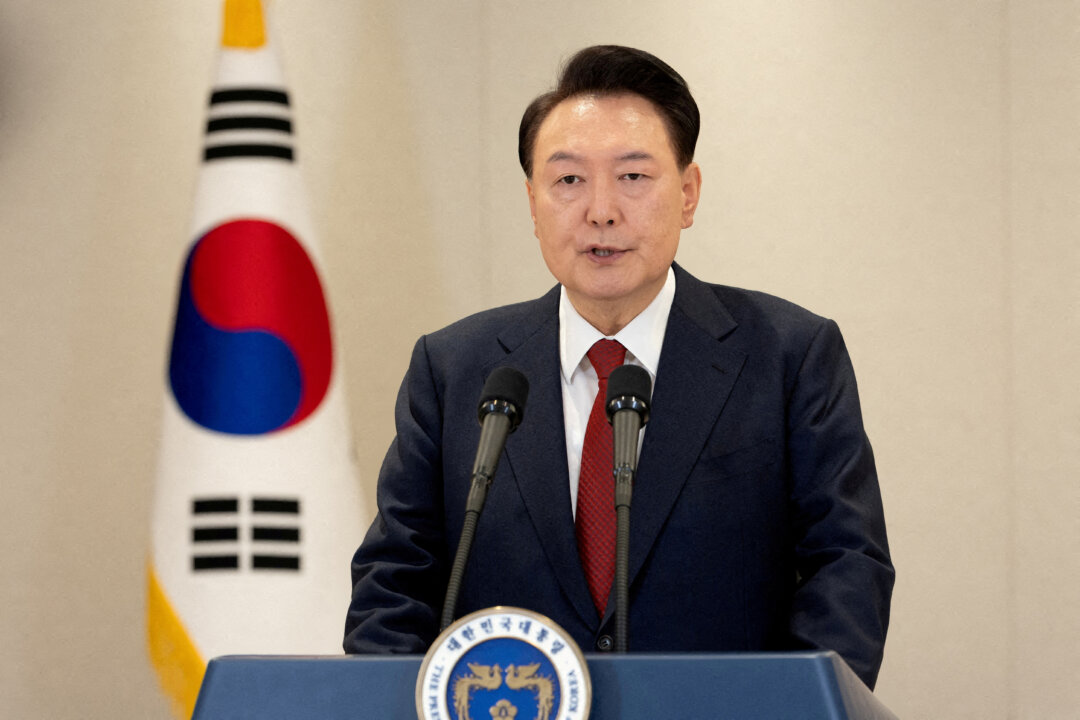The liberal opposition Democratic Party said the letter proved Yoon was inciting his supporters and was committed to completing his insurrection.
South Korea’s impeached president, Yoon Suk Yeol, promised to “fight until the end” in a letter to his supporters as he awaits the outcome of a Constitutional Court investigation into his decision to declare martial law on Dec. 3.
In the Jan. 1 letter to hundreds of his supporters who have camped near his official residence to protest the investigation, Yoon said, “I am watching on YouTube live all the hard work you are doing. I will fight until the end to protect this country together with you.”
A copy of the letter was sent to the Reuters news agency by Seok Dong-hyeon, a lawyer advising Yoon.
Yoon said he would continue to fight against forces “violating our sovereignty” and putting the nation in “danger.”
He praised his supporters for their efforts to protect the “liberal democracy and constitutional order” of South Korea.
Earlier this week, a court in Seoul issued an arrest warrant for Yoon, a conservative who was elected president in 2022 on the People Power Party (PPP) ticket.
The liberal opposition Democratic Party (DP), which heavily criticized Yoon’s imposition of martial law—which he reversed after six hours—said the letter proved Yoon was committed to completing his “insurrection.”DP spokesman Jo Seoung-lae said in a statement, “As if trying to stage insurrection wasn’t enough, he is now inciting his supporters to an extreme clash.”
When he declared martial law, Yoon blamed “anti-state forces” and described the DP as a “monster” that was using its majority in the National Assembly to undermine the government’s budget proposals.
He also accused the DP of sympathizing with communist North Korea.
Yoon has argued the martial law decree was a legitimate act of governance. He is being investigated for rebellion and, if convicted, could technically face the death penalty or life imprisonment.
Earlier this week, the Corruption Investigation Office for High-Ranking Officials (CIO) said the Seoul Western District Court had issued warrants against Yoon, who was impeached on Dec. 14.
One of Yoon’s lawyers, Yoon Kap-keun, said the detainment warrant was invalid and illegal, adding that the CIO did not have the legal authority to investigate charges of rebellion.
Yoon, who was previously South Korea’s chief prosecutor, was elected in March 2022, after narrowly defeating the DP candidate Lee Jae-myung.
He has presidential immunity from criminal prosecution, but it does not extend to allegations of rebellion or treason.
On Dec. 3, hundreds of troops and police officers were deployed to the National Assembly, but lawmakers refused to approve his martial law decree, forcing him to reverse the decision.
It will be up to the Constitutional Court—the highest court in South Korea—to determine whether Yoon should be permanently excluded as president or reinstated.
If it decides on the former course, a new presidential election will have to be called.
Yoon has claimed he sent troops to the National Assembly to maintain order and denied planning to arrest politicians.
Kwak Jong-keun, commander of the Army Special Warfare Command, told the National Assembly that he did not obey an order by Yoon to “quickly knock down the door and drag out the lawmakers who are inside.”
Last week, the acting president, Han Duck-soo of the PPP, was impeached by the National Assembly amid chaotic scenes, adding to South Korea’s political turmoil.
The deputy prime minister and finance minister, Choi Sang-mok, replaced him as acting president and was immediately thrown in at the deep end when a Jeju Air passenger plane crashed at Muan airport on Dec. 29, killing 179 people.
Choi, who also represents the PPP, has ordered an emergency safety inspection of all Korean airliners.
The Associated Press and Reuters contributed to this report.

